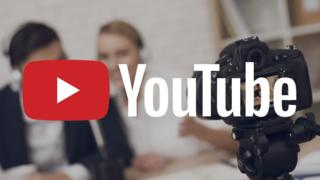
[ad_1]

Image copyright
Getty Images
YouTube will spend $20million (£15m) developing educational and how-to content on the platform, the company has announced.
Some video-makers have been frustrated by changes to the platform that made it harder for them to earn money producing short and well-researched videos.
Critics say YouTube’s algorithms favour long and sensationalist videos.
The company says its new fund will make the platform “better for educators and learners”.
As part of the scheme, YouTube will launch a new Learning channel, which will showcase its own original programmes and those made by independent creators.
Organisations such as Goodwill and Year Up will help curate the channel and put together playlists of educational content.
The BBC’s Chris Fox spoke to Malik Ducard, YouTube’s global head of learning, ahead of the launch on Monday.
Chris Fox: Why launch this fund? Is it because video-makers are struggling to earn money through advertising?
Malik Ducard: In July we announced the launch of YouTube Learning, which is an initiative to bring together the educational content creators and support them more. We announced that because the ‘edutubers’ have shown us the power of positivity and the potential of what YouTube can be in education. In 2017, there were over a billion hours [watched] of just videos with ‘how-to’ in the title… A few days ago, an education channel in Germany called In A Nutshell became the number one channel in all of Germany. I think the number two channel is football-related. It’s crazy that the educational channel should become number one, but it’s super consistent with the growth in this category.
Image copyright
In A Nutshell
In A Nutshell produces animated learning videos
CF: What sort of learning videos are you funding?
MD: It’s a broad range and there is no formal definition. There are curiosity driven channels like In A Nutshell or Vsauce. Then specific content showing how you do something such as Python coding. Then there’s a sub-set we call skilltubers that focus on job skills… we want to support a range within the category.
CF: I’ve seen my housemate watch ‘educational’ fitness videos that have a lot misinformation in them. How will you verify what’s true?
MD: There are a few things we’re doing here, with the trusted names we’re partnering up with to curate and identify the credible, trustworthy content. Working with these trusted experts is key and what we’re announcing is just the beginning. The YouTube Learning channel is designed to identify trustworthy content.
CF: Will that be curated by algorithms or humans?
MD: Typically it’s both – but we’re having curation there from trusted names like Goodwill and Year Up.
CF: Your algorithms now reward “watch time”, so the longer a video the better. That does mean a lot of how-to videos are now long and drawn out. How are you going to fix that?
MD: On the monetisation side, we’ve heard from content creators that it takes a lot of effort to make quality educational content. The $20 million isn’t all for content, it’s for a broad range of initiatives, but I think you’re right – it’s important that the economic flywheel is in place. We want to bring more brand sponsors to the table that want to be associated with quality educational content. A lot of creators in the education space are not fuelled by making a buck, they’re fuelled by making a difference. We want to honour that and strive for removing the friction and the pain points.
CF: You’re also adding online courses to teach people how to make educational content. Is that tipping towards YouTube issuing editoral guidelines as a publisher?
MD: It’s about learning the best practice – and what informs best practice comes from the best creators within the space. It’s good quality content: focused, credible, trustworthy. But there will also be the tips and techniques to help the creators communicate in a way that’s natural. The best teachers are the ones where you don’t feel like you’re learning, you’re just swimming in knowledge. That’s also the nature of many of the best edutubers on the platform.
Source link